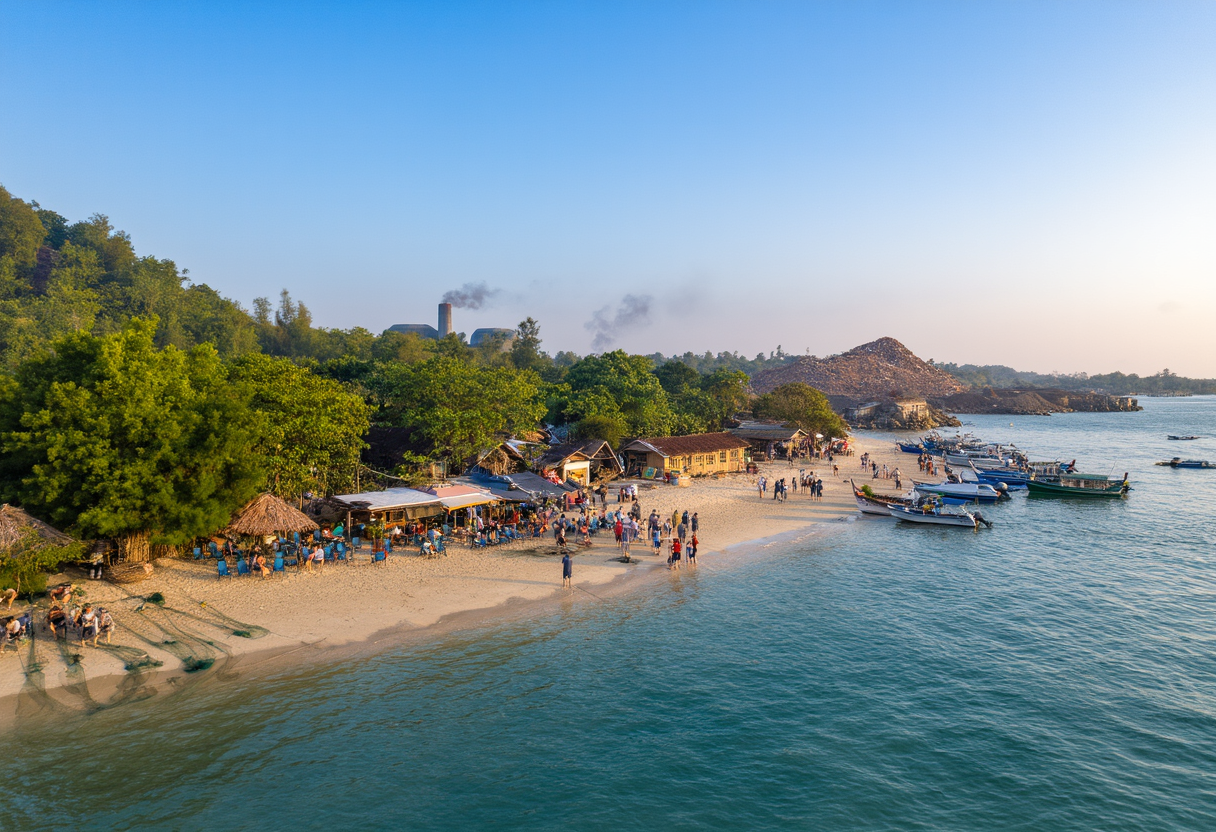Island Tourism and Its Impact on Local Economies: A Double-Edged Sword!
The impact of island tourism on local economies is profound, yet complex. While tourism can bring substantial economic benefits and job opportunities, the challenges associated with over-tourism and resource depletion cannot be overlooked. This article delves into the dual nature of island tourism's effects on local economies, exploring both its advantages and disadvantages for island communities.
The Economic Benefits of Island Tourism
Island tourism can significantly boost local economies through increased revenue, job creation, and infrastructure development. Tourists provide a vital economic lifeline by injecting money into local businesses, ranging from hotels and restaurants to shops and services. This financial influx supports job opportunities in various sectors, benefiting residents. Moreover, increased demand often leads to the development of essential infrastructure, including transportation and healthcare facilities. Such improvements not only enhance the quality of life for locals but also improve the overall visitor experience. Additionally, successful island tourism can enable communities to invest in sustainable initiatives that protect their heritage and environment. As a result, local economies can flourish through the responsible management of tourism, while at the same time fostering community pride and cohesion.
The Challenge of Over-Tourism
Over-tourism presents a significant challenge to many popular island destinations. The influx of visitors can lead to strained local resources such as water, energy, and waste management systems. Communities often face the dilemma of balancing tourist demands with their residents’ quality of life. Overcrowding can diminish the traveler experience, detracting from an island's natural beauty and charm. Furthermore, the cultural integrity of local communities may become compromised as traditional practices are overshadowed by mass tourism. Therefore, finding a balance between visitor numbers and community sustainability is crucial for the longevity of island tourism. Effective strategies, such as limiting tourist capacity and promoting off-peak travel, can help alleviate these pressures, allowing both visitors and locals to thrive.
Environmental Impacts of Island Tourism
The environmental impact of island tourism cannot be overlooked. While tourism can contribute to economic growth, it can also result in significant ecological degradation. Issues such as pollution, habitat destruction, and wildlife disturbances often arise from unchecked visitor activities. The delicate ecosystems on islands are particularly vulnerable, and without proper management, tourism can lead to irreversible damage. However, it is possible to implement strategies that mitigate these risks. For instance, promoting eco-friendly practices, implementing regulations on environmental protection, and encouraging responsible tourism behaviors can help preserve island ecosystems. Island tourism has the potential to act as a force for good, promoting environmental awareness and fostering conservation efforts when approached responsibly.
Community Involvement and Empowerment
Engaging local communities in island tourism is essential for ensuring equitable benefits. Placing locals at the forefront of tourism initiatives fosters a sense of ownership and pride. When communities actively participate in decision-making processes, they can influence the tourism narrative, advocating for sustainable practices that benefit all. Empowering local businesses and entrepreneurs also enables them to reap the rewards of tourism growth. Initiatives that promote local artisanship and cultural experiences can enrich the visitor experience while ensuring that economic benefits stay within the community. Moreover, partnerships between tourism operators and local stakeholders are vital for creating positive outcomes for all parties involved. Hence, community empowerment represents a sustainable approach to island tourism that honors human and environmental resources.
The Future of Sustainable Island Tourism
Sustainable practices are critical for shaping the future of island tourism. Focusing on responsible travel aligns with the desires of modern travelers who prioritize eco-conscious experiences. Destination management must incorporate sustainability as a core principle, evaluating the long-term impacts of tourism development. Transparent practices, including resource conservation and community engagement, play vital roles in this transformation. Furthermore, educating tourists about their potential impact on islands encourages responsible behaviors, helping to protect local cultures and ecosystems. By cultivating a sustainable mindset, both island tourism stakeholders and travelers can contribute to a systems approach to tourism that benefits both locals and the environment. The potential for a balanced, thriving ecosystem of tourism exists, requiring a collaborative effort from all parties to prevent detrimental outcomes.
Conclusion: Navigating the Complexities of Island Tourism
Island tourism represents a profound yet complex influence on local economies. By recognizing both its economic benefits and challenges, stakeholders can work toward responsible management of tourism practices. Ultimately, empowering local communities and adopting sustainable approaches will ensure that island tourism thrives without compromising ecological integrity or local livelihoods. As global travelers increasingly seek authentic experiences, island destinations must navigate these complexities with care, leading to a future where tourism harmonizes with the needs of the local communities and the environment.
